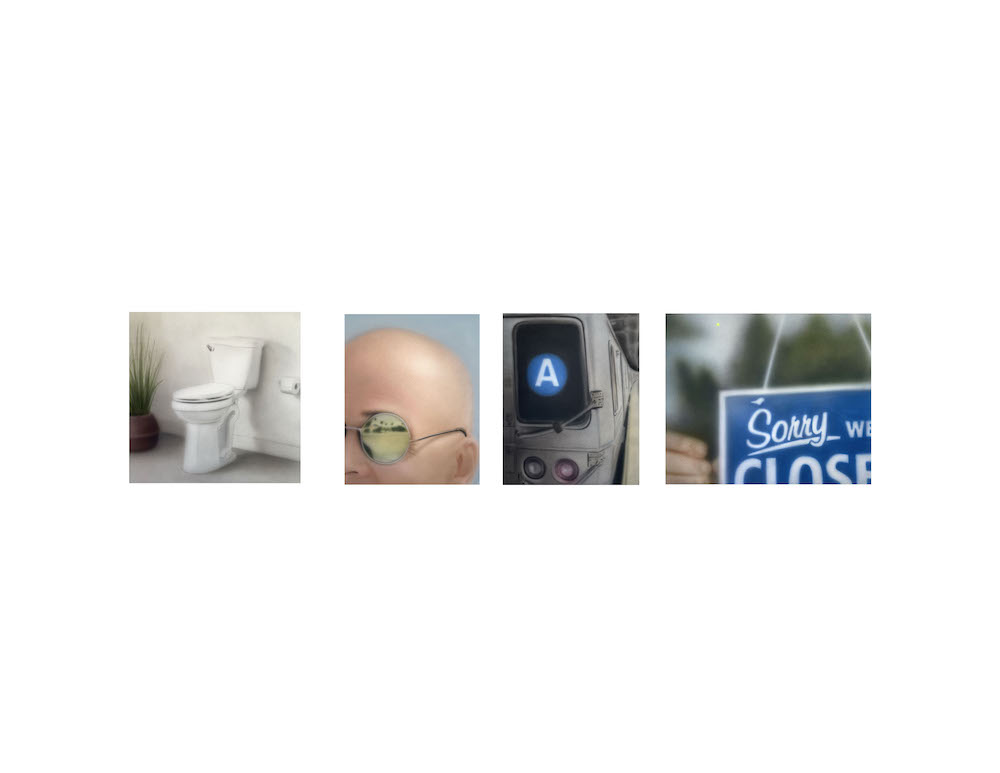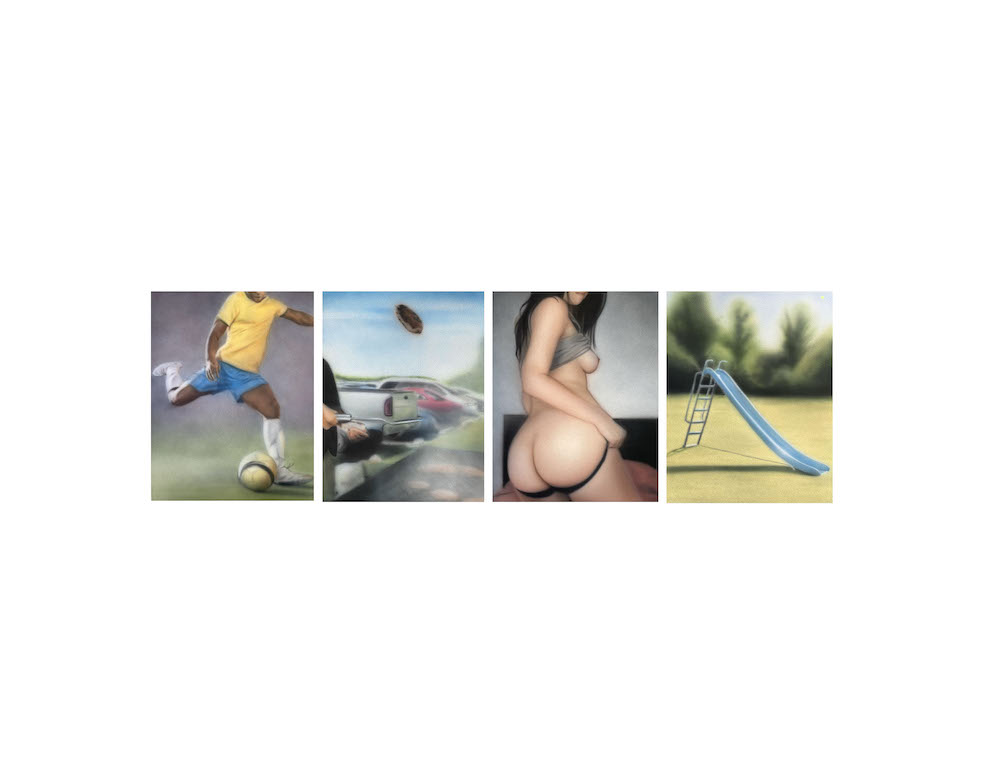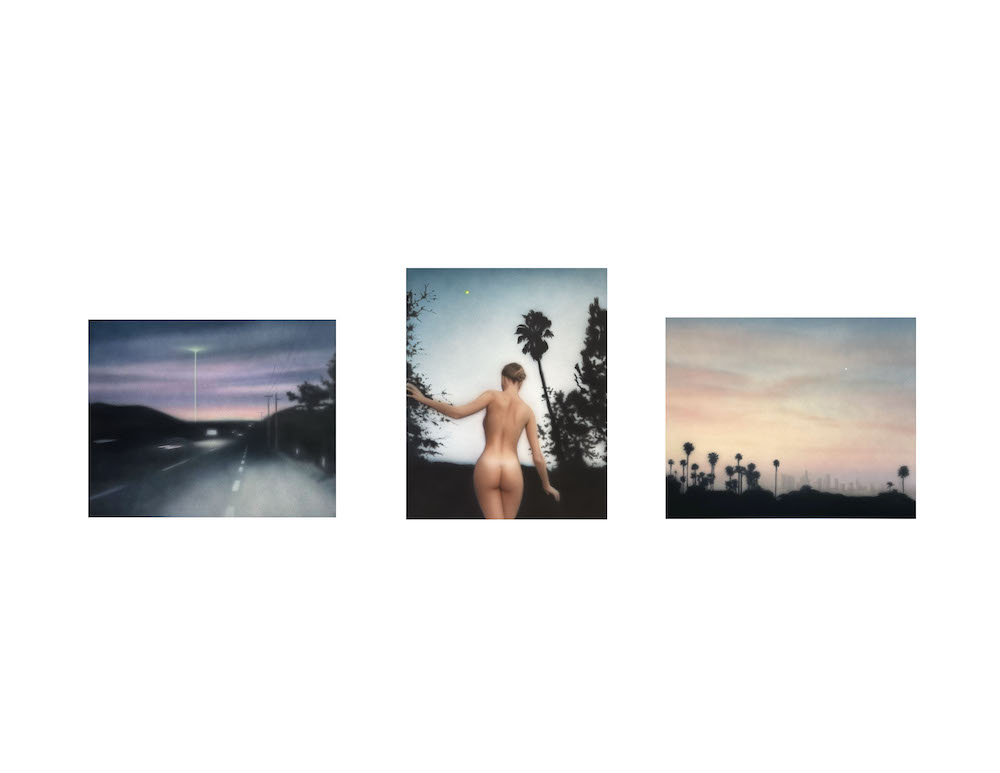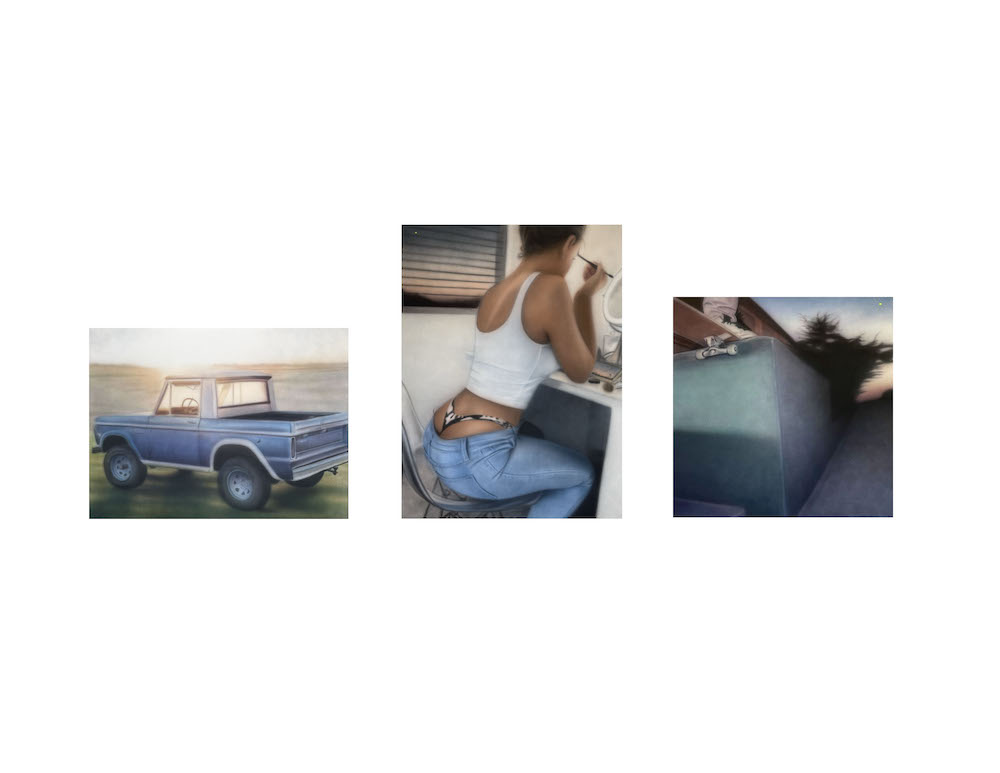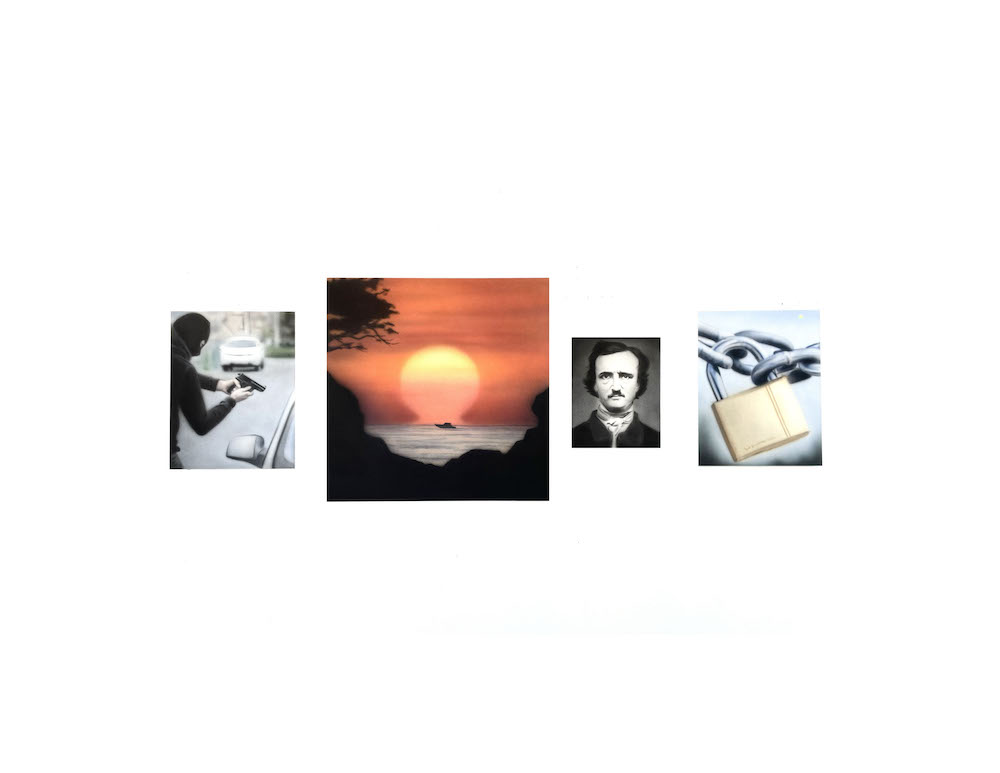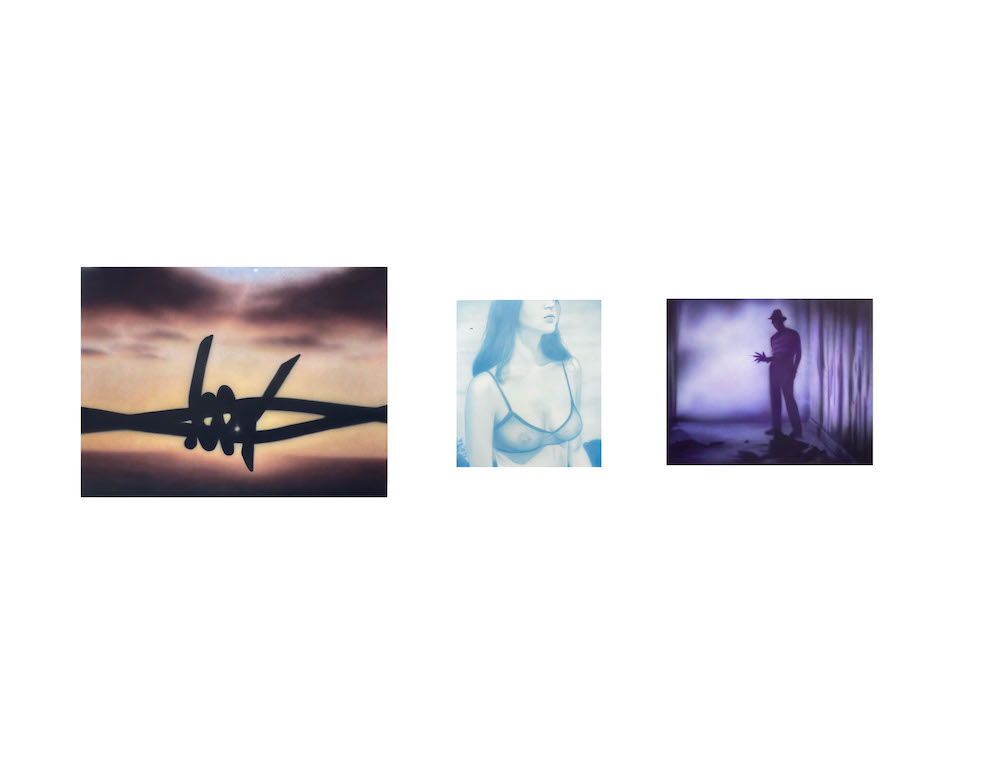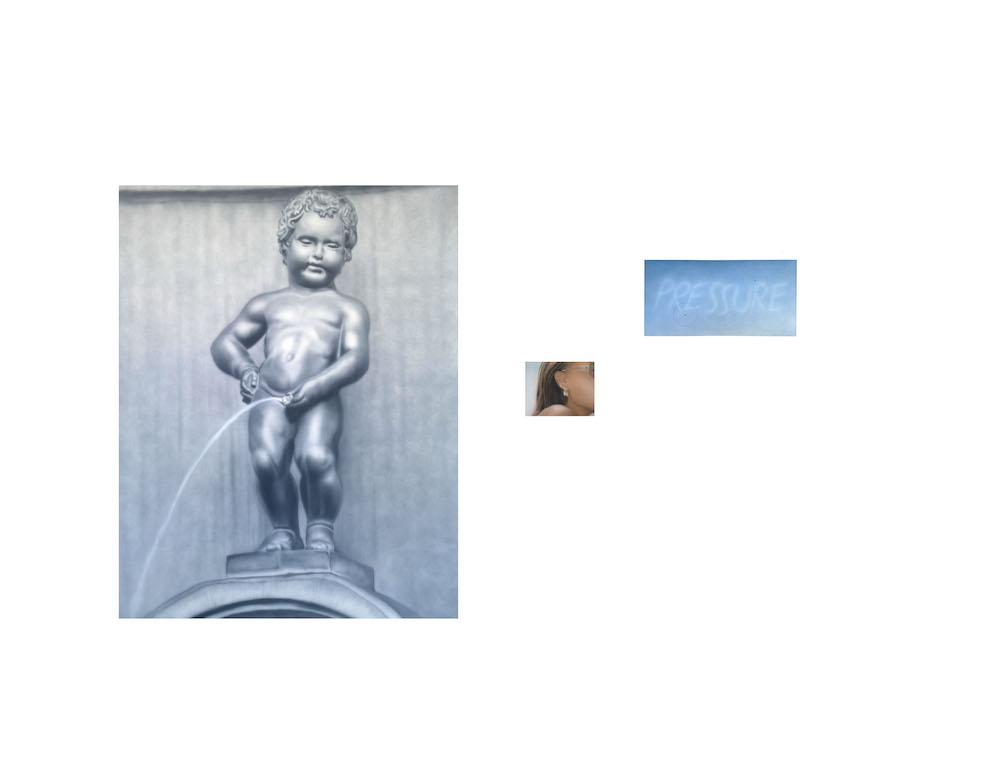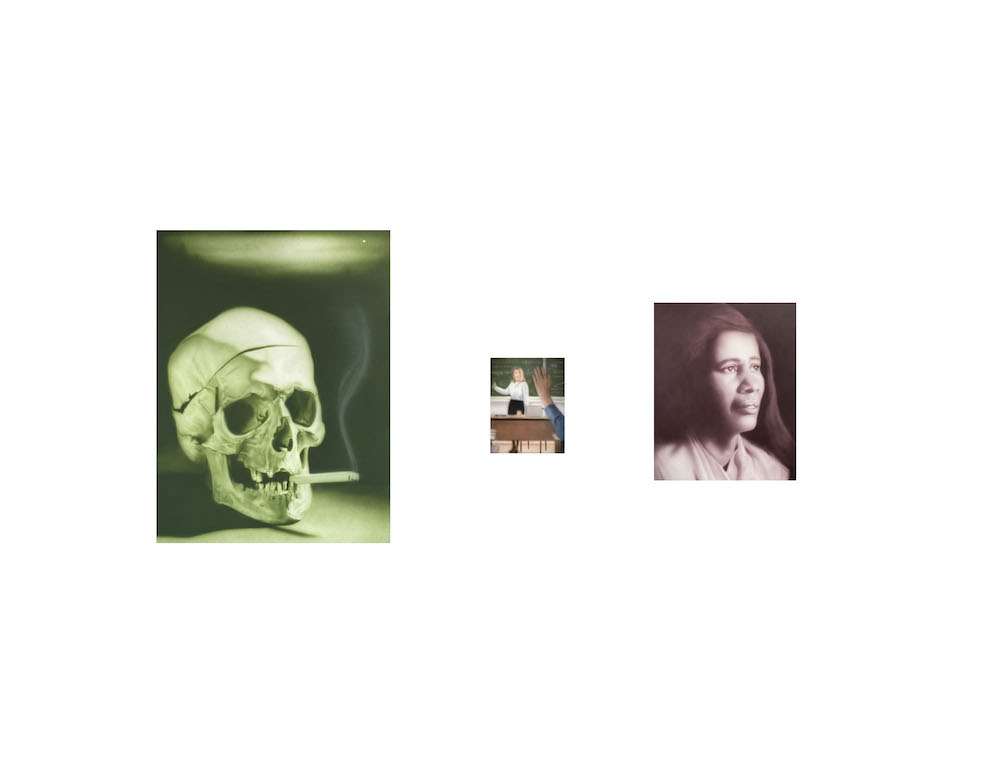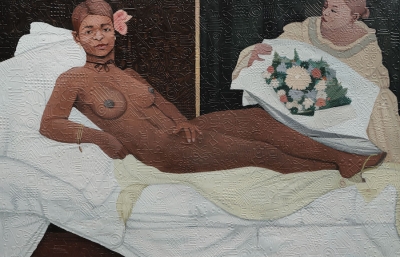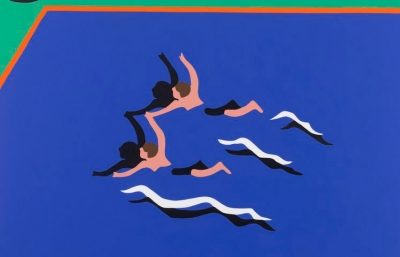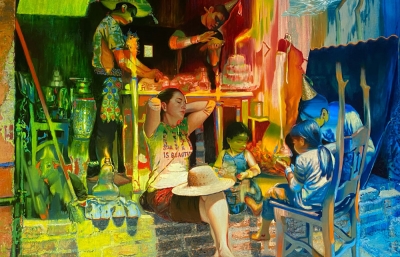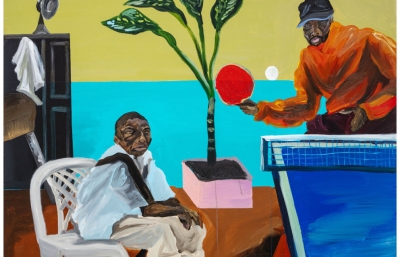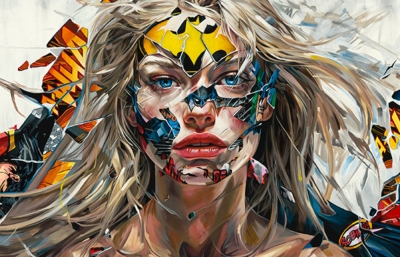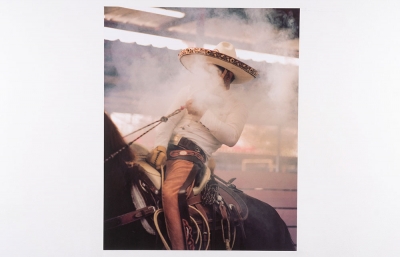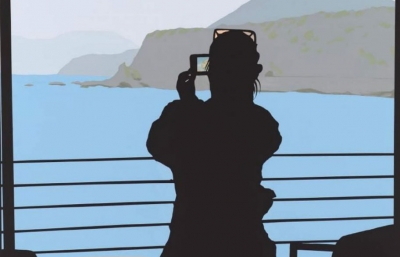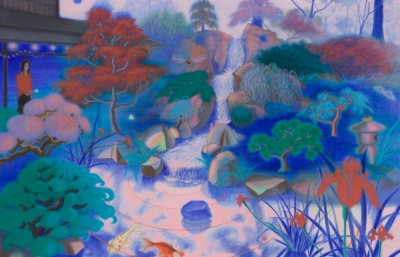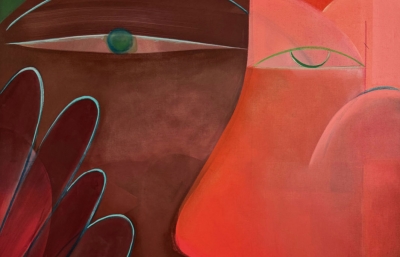There is a moment in the paintings of Aryo Toh Djojo where dusk begins to settle and the light begins to blur between pinks and oranges. The work looks as if the concept of memory is being applied to canvas, a conceptual idea of how we utilize nostalgia and process time in the most cinematic of expressions. Cinema is a backdrop to Toh Djojo’s work, a sense of wonder and dichotomy between fantasy and reality. He is a director in a sense, utilizing the airbrush as a camera and observing the California landscape with both a universal wonder and extraterrestrial appreciation. Life is more than just what we see, and the haze of Toh Djojo’s airbrush obscures our normal vision, giving the possibility that there is more in the world than just a simple frame.
“It’s all temporary. Time is temporary. And I think it’s really all in perspective. You can sit down and think about how things are fucked up right now or you can live life and try to observe and enjoy the present moment as it continues to unfold. Of course, it’s easier said than done but that’s just the reality of life happening before our eyes. If you try to control or understand it, you’ll miss the magic that is happening.”
Magic. In Toh Djojo’s newest body of work at Stems Gallery in Brussels, magic reveals itself in the idea of a puzzle. The rebus, a tool of language and visual culture for thousands of years, is the tool he utilizes here, a way of communicating the beauty of randomness and understanding. He is painting with the idea of chance in mind, one that the viewer can understand his language but also creating a wink and nod to his audience. It’s funny and it’s ethereal. It’s endless and it’s direct. The rebus takes the familiar and makes it unfamiliar and then familiar once again. There’s beauty there. It makes sense that the artist was born and raised in Los Angeles, and has been influenced by the light and impact of the city, where familiarity is turned upside down as an industrial practice.
His new work plays out like mini-scenes within a larger picture, where perhaps a canvas can be taken out of the rebus but the context is lost. In a kick flip tail slide, a common skate trick, the backside in Toh Djojo’s rebus could be removed, but the meaning wouldn’t be as defined.
Toh Djojo has transformed himself for this show, from a California dream to a renewed command of storytelling and playful conversation with his audience. He creates endless possibilities with an airbrush, blurring literal pop iconography with an abstracted version of authorship. It’s funny and irreverent, brilliantly executed, and endless in interpretations. The rebus may be a device, but it’s a reminder that our memories are constantly in flux.
As Toh Djojo says, “Time is constant and fluid. We can’t really pinpoint the beginning or end of time unless we’re conscious and fully aware of the present. But I don’t know if that’s even possible because the inbetween is the beginning and the end.” —Evan Pricco



